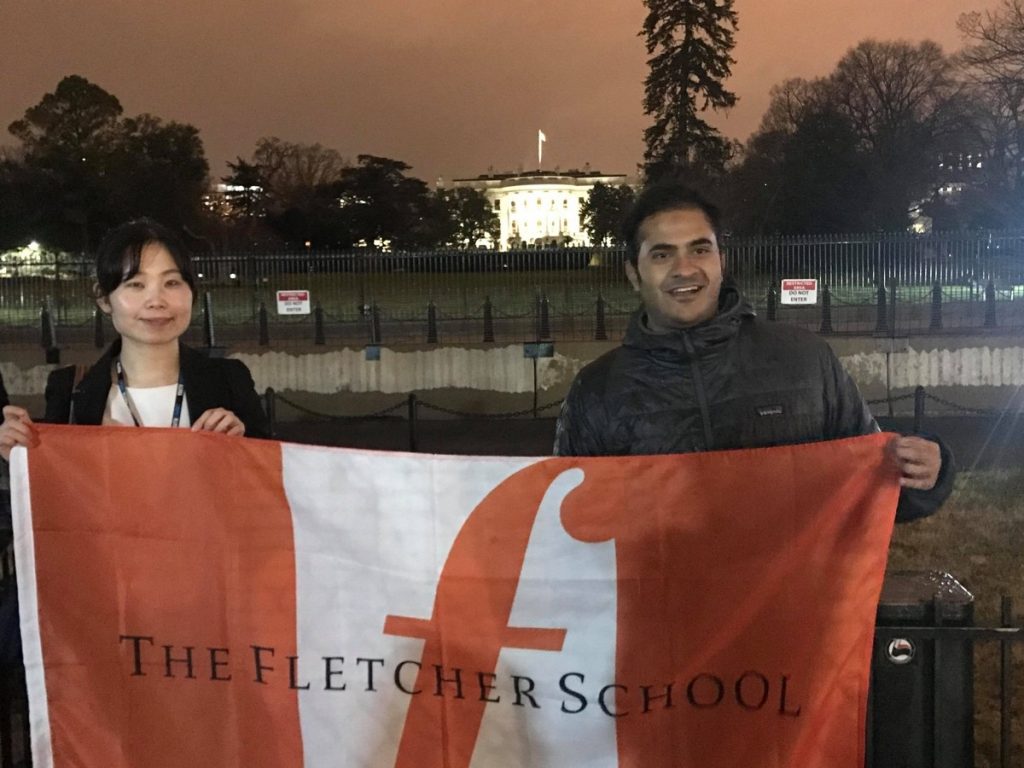Akshobh on winter and his first Fletcher semester
We’re going to close out the fall semester updates with Akshobh’s report on his semester and how it met his expectations.
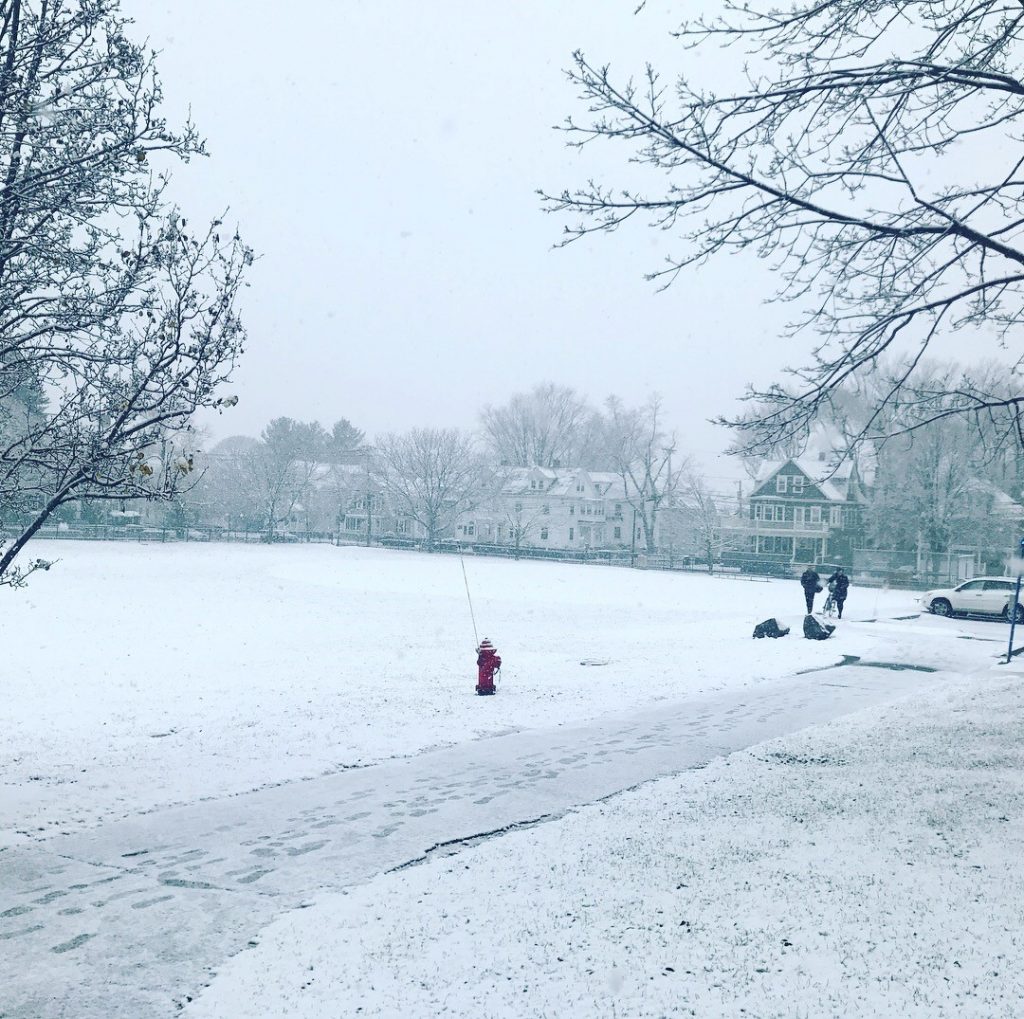
I had been forewarned that nothing can truly prepare you for a New England Winter. In my previous post, I wrote about how, after seven years of living on the equator, the only weather I had experienced oscillated between rain or no rain. In Singapore, where I lived for seven years, it was summer throughout the year. December 17th or June 6th made no difference — t-shirts and shorts were the norm. The closest I had come to see snow was in an indoor mall in Dubai. (My New Englander friends have told me that doesn’t count.)
On December 9th, on a snooze-filled Saturday morning, I woke up to see something miraculous outside Blakeley Hall — the winter’s first snow. Yet I had half expected a tepid response to something seasonally expected from many who grew up around snow.
Much to my surprise, even friends who grew up around snow showed the same alacrity to be outside as I did. The first day of snow is, indeed, quite mesmerizing. My fellow blogger, Kaitlyn, a native New Englander, describes winter as her favorite season. (It seems like it will take more than three decades of snowy winters to change her mind.)
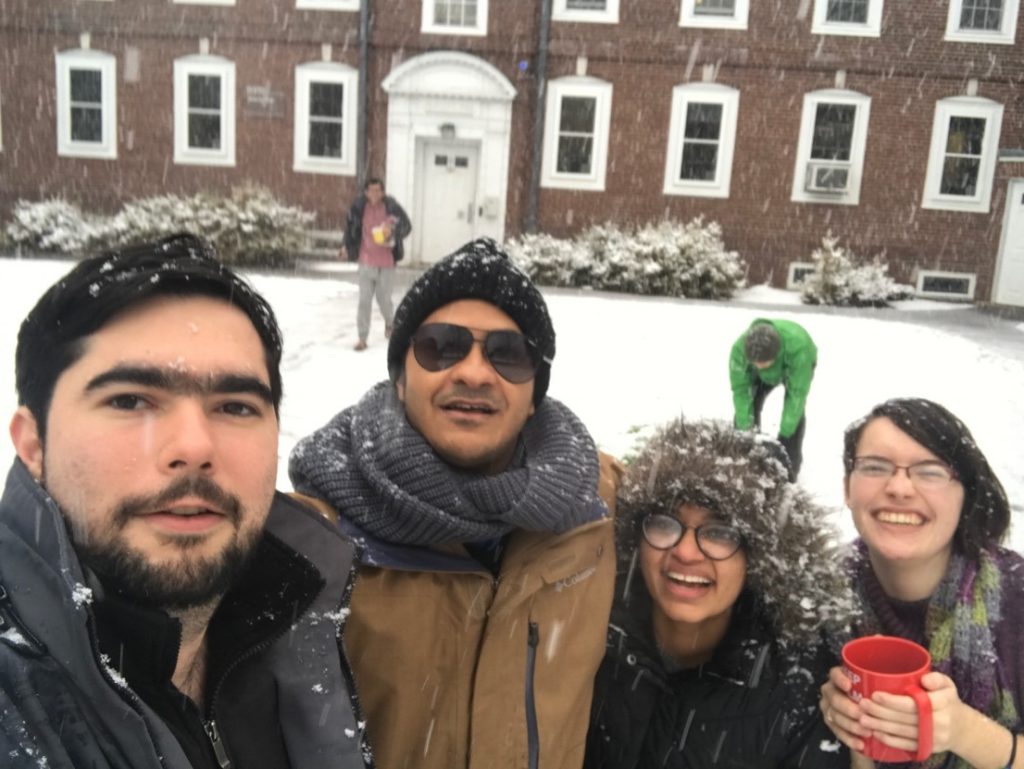
There are many perks to living in Blakeley Hall. The stellar ones are the value for money in terms of rent and the bonhomie you forge among the seventy-odd residents – if Fletcher is about community, Blakeley is a microcosm. But most of all, for folks like me who are used to tropical habitat, the commute from Blakeley to Fletcher is only seventy steps away. The short commute is the biggest asset in Boston’s blistering blizzards.
Sitting away from the snowfall in Atlanta, Georgia during the winter break gave me a good chance to reflect on a first semester that whizzed by. Going back to the classroom after years in the newsroom was always going to be hard. But what kind of a program am I in and what sort of people does Fletcher attract and what sort of careers result?
The MALD is no doubt esoteric; after all, it is truly one of a kind. And safe to say that there is no cookie-cutter MALD candidate, since unlike other degrees (say an MBA, JD or an MD), a MALD is truly malleable, and can be shaped to work for one’s self in a manner like no other.
At Fletcher, pick any world issue or geographic region, and I guarantee you will find either a professor who is expert on the subject, or a student who is studying that particular issue, or someone who is from the region or has worked there: from understanding food security in Malawi, to exploring how blockchain can be used to solve problems in healthcare, to considering the plight of the Rohingya in Myanmar, to the security threats arising out of asymmetric warfare in the South Asia. Perhaps the words Law & Diplomacy in the acronym MALD, don’t quite capture the intellectual depth and expertise the school has to offer. It’s not surprising when you and your roommate, both in the MALD program, could discover that in the whole two years — four full semesters — you’ve never been in the same class.
My focus at Fletcher is to be at the nexus of geo-politics and geo-economics, for I feel foreign policy and business are no longer two disparate entities but the common portion of a Venn diagram. Governments and businesses can no longer ignore each other, for global political events affect economic outcomes.
In short, my goal at Fletcher is to understand a country’s tale (history & foreign policy) and how companies scale (business).
Hence my first semester saw me take a mix of classes, including National Security Decision Making: Theory and Practice, traditionally for the security junkies and foreign policy wonks, as well as Starting New Ventures (where I was one of only three first-year students, in a predominantly second-year MIB class) dealing with cases about entrepreneurs and the challenges they face. There are few places and few programs that offer such an eclectic mix.
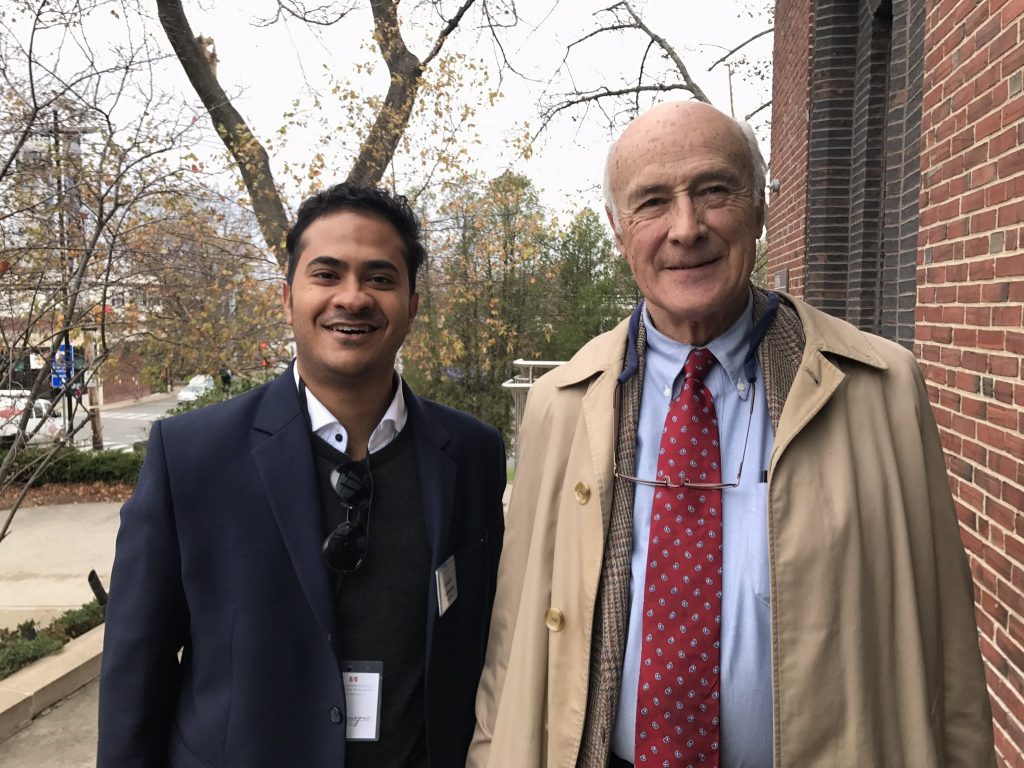
My interests drew me to partake in events such as Simulex, where I was the Director of National Intelligence for the U.S in a Fletcher-wide simulation also featuring China, North Korea, South Korea, Japan and Taiwan handling an East Asia Crisis. I interviewed leading Harvard academic Joseph Nye on soft power for the Fletcher Security Review, had lunch with Lord Michael Dobbs, discussing political leaders, and attended guest lectures from two four-star generals.
Meanwhile my interest in economic affairs led me to organize and moderate a panel on President Trump’s trade policies titled “Trump: Trade & Tirade.” In addition, two other Fletcher students and I were selected to attend the World Bank Youth Summit in Washington, DC, which focused on Technology and Innovation for Impact.
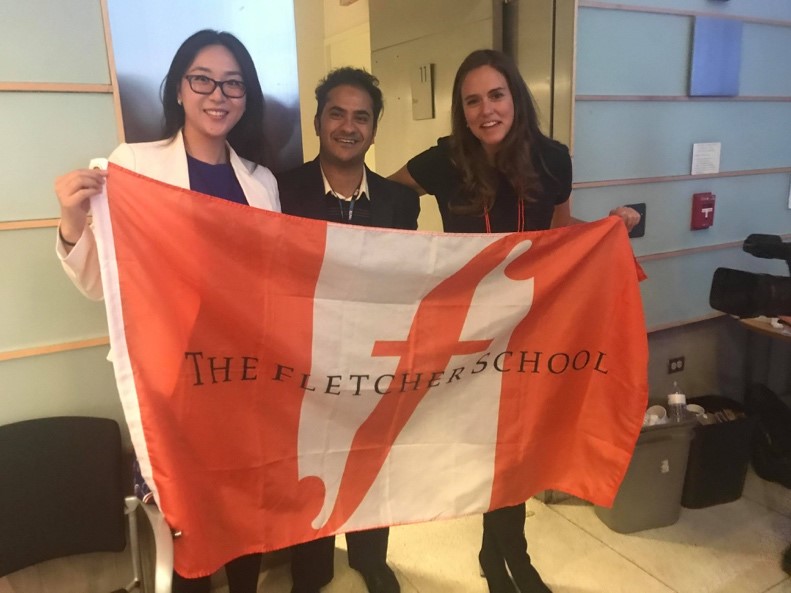
Fletcher’s global influence was evinced when at the World Bank in DC. Every time we unfurled the Fletcher flag, we found an alumnus at the bank who came up to us and said, “Hey, I went to Fletcher, too.” It’s almost as if the Fletcher flag was our business card.
Looking back, the decision to take the plunge and return to school was never easy. I had friends and family who were divided on the issue of my giving up a stable income and taking a hiatus from the working world. The camps were split, so much so that I facetiously say that it became a Brexit decision: there was a “Stay Camp” (don’t quit your job and move halfway around the world) and a “Go Camp” (take the plunge, it’ll be worth it).
An investment banker friend asked me how I could justify paying tuition and foregoing two years of income. To which I replied that when I walk into the Hall of Flags and see all the illustrious alumni names on the wall of this hallowed institution, I am reminded that I am going to school with peers who will rise similarly to the highest echelons of government, become future diplomats, and serve their country’s military. And I will have sat right beside them while their intellectual moorings took hold.
So how can I put a dollar value on that experience?
